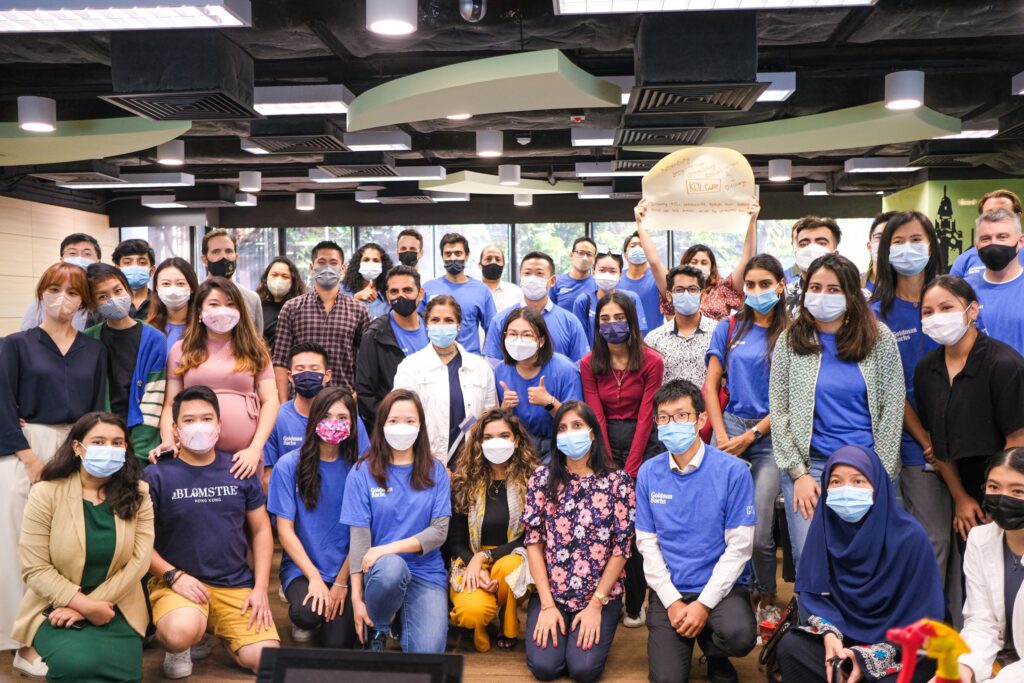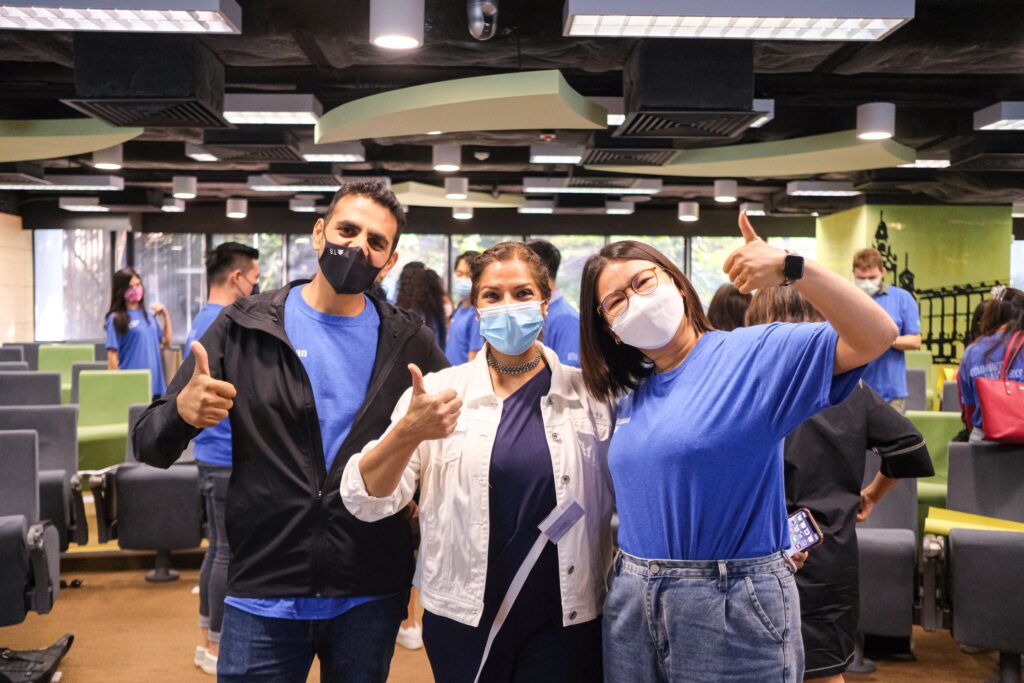As the mentees of our Mentorship Program for Ethnically Diverse Entrepreneurs would agree, one of the biggest takeaways from the Funding and Financing Opportunities workshop, held by FundFluent, is that getting funding is rooted in storytelling, both quantitatively and qualitatively, about the business.
A good business pitch can not only connect entrepreneurs with funders and investors, but also clients, collaborators, partners, and volunteers who play an equally important role in jumpstarting a business idea or accelerating the growth of a company.
But here’s the thing: there is no-one-size-fits-all when it comes to creating a business pitch. Depending on the occasion, the format of the pitch varies. For example, is it for a funding application, a business competition, or a marketing campaign? How long or short should that pitch be? In what format should it be delivered? And what kind of information should go into the pitch?
Understanding that these questions are no doubt on the minds of our mentees, we at Foundation for Shared Impact (FSI) held the How to Pitch Your Business workshop on 14 October to equip our mentees with the know-how on pitching. We also engaged 23 Goldman Sachs Community TeamWorks volunteers to consult with our mentees and help them create several pitching deliverables.
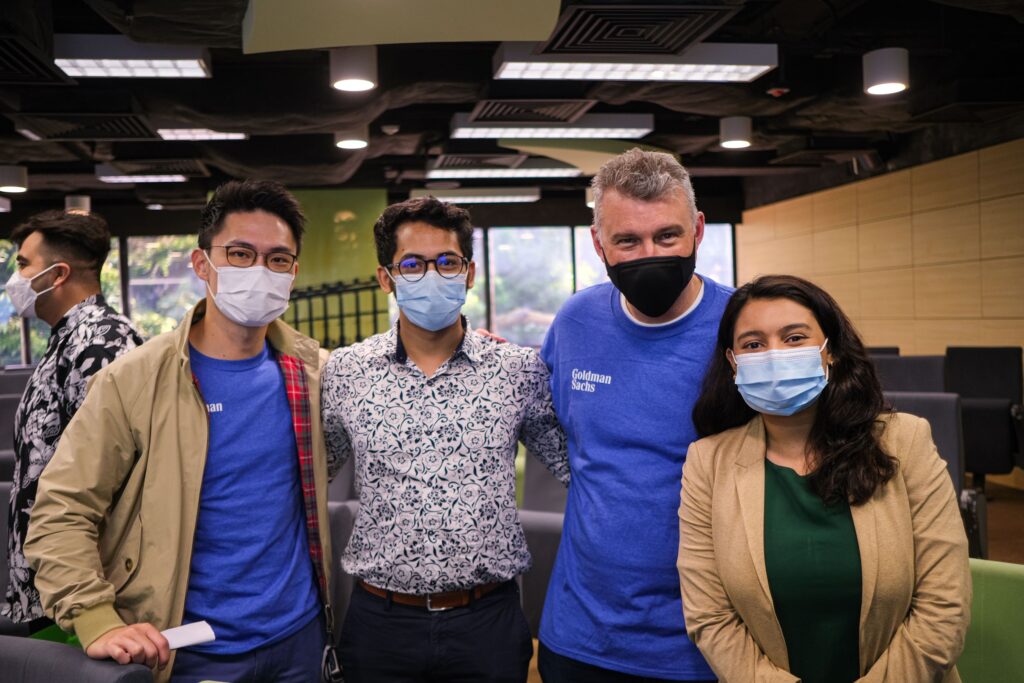

Preparing for Your Business Pitch
In her presentation, FSI Community Business Support Project Manager Vivian Seo elaborated on the first step of preparing for a business pitch: creating a pitch bank. “You want to prepare your inventory of written and spoken materials. Examples of these include the keywords (for hashtags and SEO), catchphrases and slogans (for your website, social media, posters), your vision and mission statements, key sentences that aptly describe your business or project, and some boilerplate language that consolidates the keywords, key sentences, and your vision and mission statements.”
The next step then is to develop the outputs. Here, it is important to consider the purpose of your pitch and the audience at the occasion of your pitch. Will you be pitching to an audience in person, and for how long? Or are you reaching out to potential collaborators, funders, and partners through emails? Does the occasion call for something that is catchy and bite-sized or something that is more formal and informative?
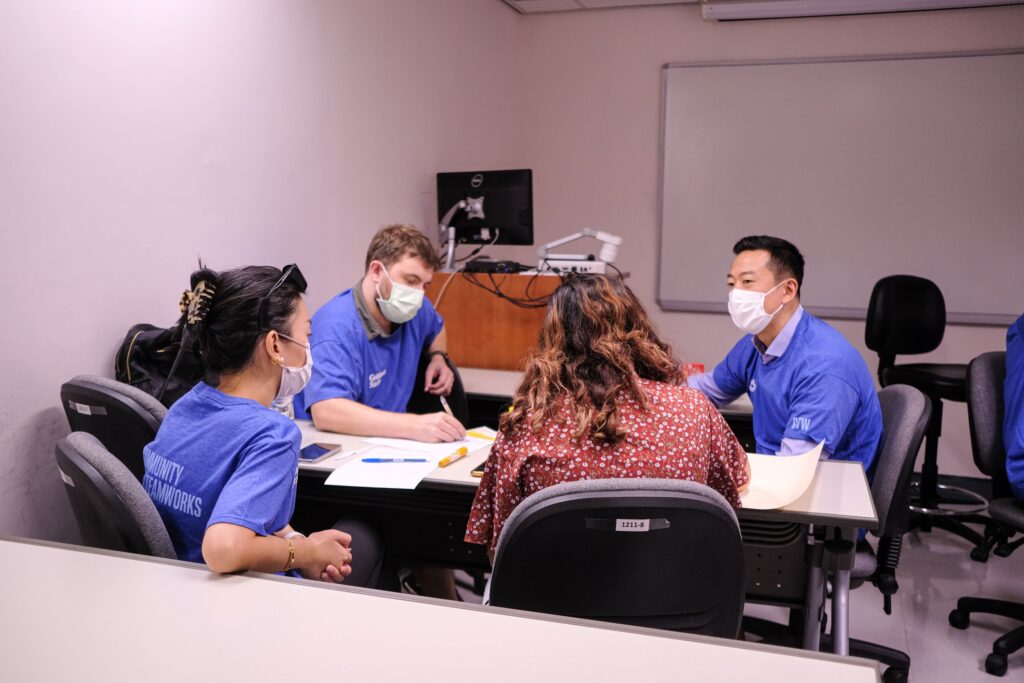
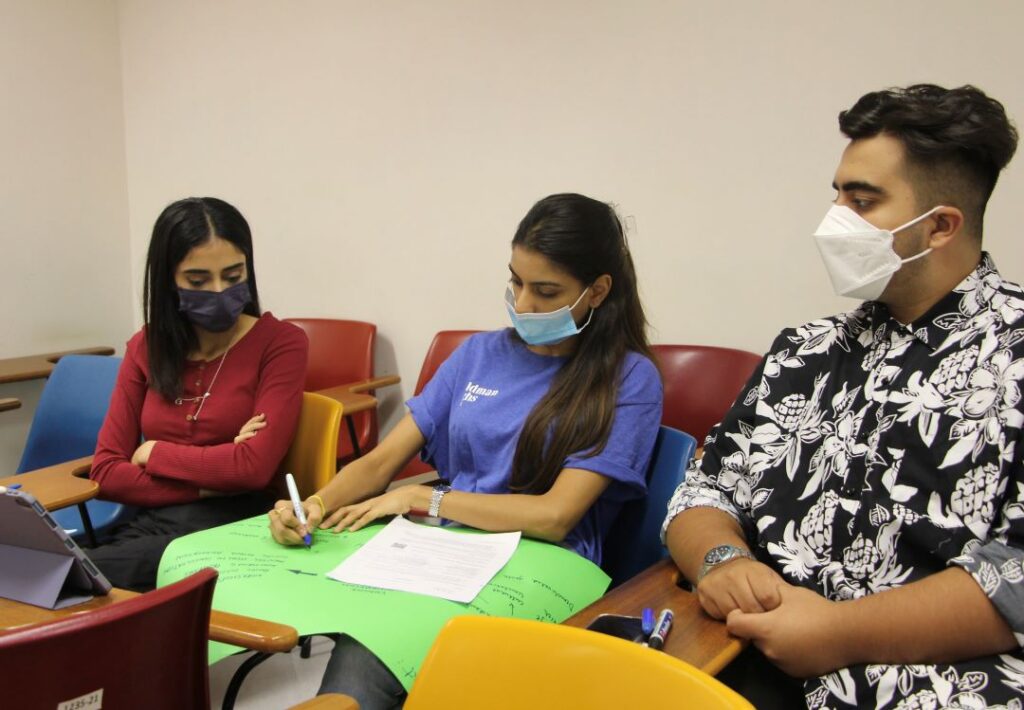
Depending on the purpose and the audience, you can decide on whether to create a one-liner elevator pitch, a short pitch of one to two minutes, an information deck, a written proposal, or a pitch deck especially for potential investors.
Amongst the different types of pitching materials, a one-liner elevator pitch is perhaps one that all entrepreneurs must have. “Essentially, an elevator pitch is a one-sentence pitch that you can use as an introduction to the people you meet for the first time at events, conferences, or by email,” said Vivian. “It serves the function of telling people about your work, the people you serve, and the reason that your work matters.”
Goldman Sachs Volunteers Brainstorming for Ethnically Diverse Entrepreneurs
Once our mentees got the basics of business pitching, they were paired with different Goldman Sachs Community TeamWorks volunteers. In their respective breakout sessions, Goldman Sachs employees took time to understand our mentees’ business (ideas), review the pitching materials that are already available, and define whether they are relevant to the mentees’ business – are the materials tied to the company’s mission, in what ways is the business (idea) unique and how best to present it, and whether the materials are easily understandable for the audience.
As people who are new to the mentees’ business (ideas), the Goldman Sachs employees, with professional backgrounds in asset management, sales and trading, compliance, human capital management and more – were well-placed to challenge the assumptions the mentees might have had, and ask pertinent questions to help them refine their business pitch.
Once the Goldman Sachs employees helped our mentees define and work out several business pitch deliverables, they took turns to present their respective discussion results or pitch for our mentees’ business.
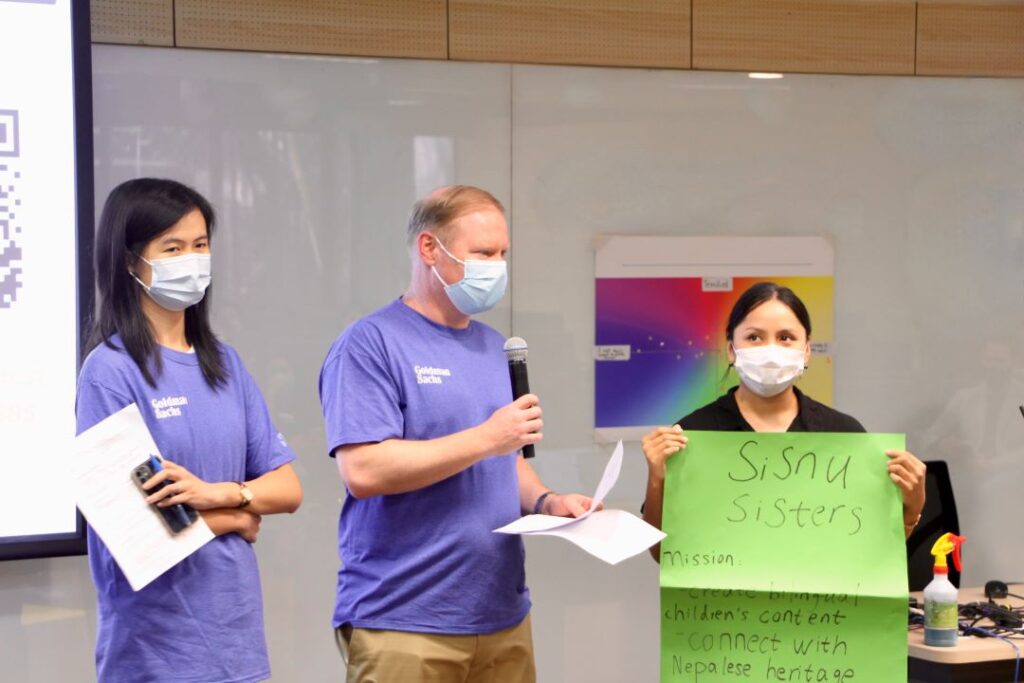
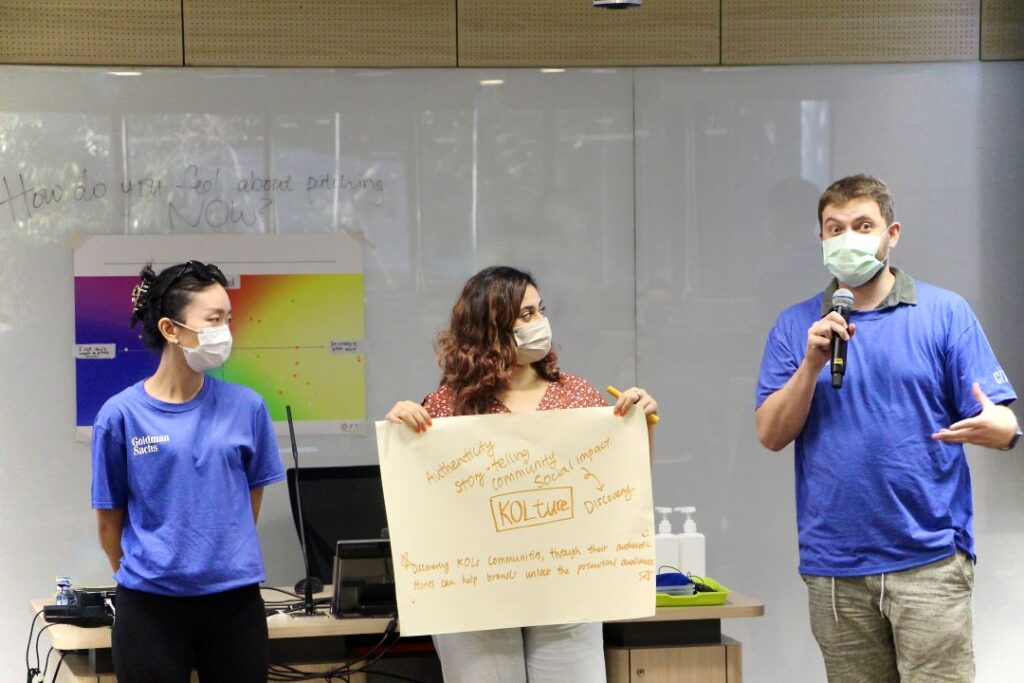
Broad Collaboration and Knowledge Sharing
At FSI, we believe in the power of broad collaboration and freely sharing knowledge, resources, and information in driving systems change. As an intermediary experienced in facilitating such exchange between the private sector and the social impact space, we would like to thank the Goldman Sachs volunteers for collaborating with us again after the previous Impact Jam, to offer their expertise and skills to our community of ethnically diverse entrepreneurs.
To our mentees: we hope you were able to learn more about business pitching from the workshop. If you would like to dig deeper into creating an elevator pitch, a one-minute pitch, or an informative pitch deck, bookmark this page in our Entrepreneur’s Toolkit now! Remember, you can always book a consultation with the FSI team on Thinkific. See you at the next workshop, Marketing 101, on 25 October!
*Interested in supporting our work on helping ethnically diverse entrepreneurs start and scale their business? Donate to us or get in touch with us on cbs@shared-impact.com!
